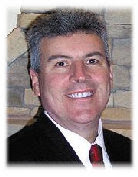Grandparents want the best for their children and grandchildren. They often give gifts while alive, or make provisions for their loved ones after they are deceased. Grandparents who are in a position to leave money to grandchildren often want to do something for their grandchild(ren) with special needs. They often worry about a severely handicapped or disabled grandchild, who may need additional assets or assistance to lead a quality life. Grandparents are sometimes told not to leave their grandchild(ren) with special needs anything because the child(ren) may lose government benefits. People are often confused as to what to do or not to do.
Grandparents can leave money to their grandchild(ren) with special needs.
There are very special ways to do it!
Money has to be left in such a way so that government benefits are not lost.
Assets in excess of $2,000 will cause the loss of certain government benefits for the person with special needs.
Money should not be left to the grandchild directly, but should be left to a special needs trust.
The special needs trust was developed to manage resources while maintaining the individual's eligibility for government benefits. The trust is maintained by a trustee on behalf of the person with special needs. The trustee has discretion to manage the money in the trust and decides how the money is used. The money must be used for supplemental purposes only. It should only supplement, or add to benefits (food, shelter or clothing) that the government already provides through Supplementary Security Income (SSI). It must not supplant or replace government benefits. If properly structured by a knowledgeable special needs attorney, the special needs trust assets will not count towards the $2,000 SSI limits for an individual.
Brief Summary of Do’s and Don’ts!
Do’s:
Make provisions for your grandchild(ren) with special needs. Leave money to the child’s special needs trust.
The special needs trust is the only way to leave money without losing government benefits.
Coordinate all planning with the child’s parents or other relatives.
Notify the parents when you plan for grandchild(ren). Plan with others.
Leave life insurance, survivorship whole life policies and annuities to the child’s special needs trust.
The special needs trust can be named as the policy beneficiary. When the insured or annuitant dies, the death benefit is paid to the special needs trust. The special needs trust then has a lump sum of money to be used in caring for the grandchild(ren) with special needs.
Consult with trained financial and legal professionals with specialties in special needs estate planning.
Don’ts:
Do not disinherit your grandchild(ren) with special needs.
Money can be now left to a properly drawn special needs trust. It does not make sense to disinherit any of your grandchild(ren) with special needs.
Don’t give money to your grandchild(ren) with special needs under UGMA or UTMA (Uniform Gift or Transfer To Minors Act).
Money automatically belongs to the child(ren) upon reaching legal age. Government benefits can be lost!
Don’t leave money directly to a grandchild with special needs through a will.
Money left will be a countable asset of the child and may cause the loss of government benefits.
Don’t leave money to a poorly set up trust.
Money left in an improperly drafted trust can result in the loss of government benefits.
Do not leave money to relatives to “keep or hold” for the child with special needs.
The money can be attached to a lawsuit, divorce, liability claim or other judgment against the relative.





